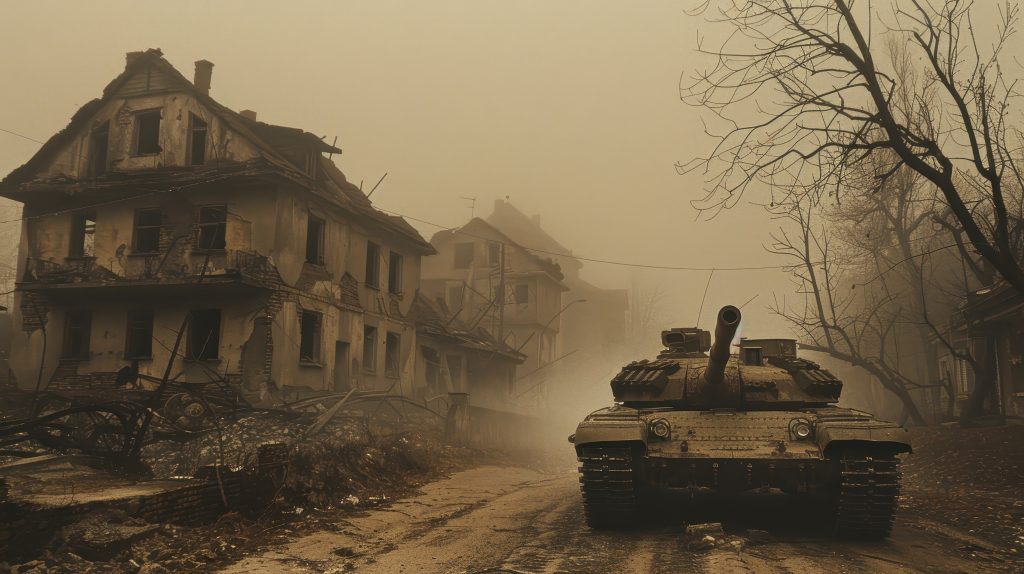The Israel-Iraq conflict has long been a focal point of tension in the Middle East, but its impact extends far beyond the region. This war not only affects the direct players but also has global consequences that shape international relations, economies, and military alliances. In this article, we will explore how the Israel-Iraq conflict impacts other nations globally, highlighting key areas like geopolitics, trade, and regional stability.

1. Geopolitical Shifts and International Relations
The Israel-Iraq conflict often draws in powerful nations like the United States, Russia, and regional powers like Iran and Saudi Arabia. These countries, with vested interests in the Middle East, often take sides, leading to shifts in global alliances and tensions. For instance:
- United States: A close ally of Israel, the U.S. provides military and financial support, which sometimes leads to strained relations with other Middle Eastern nations and their allies.
- Iran: As a key regional player and opponent of both Israel and the U.S., Iran’s involvement escalates the conflict and contributes to a more volatile geopolitical landscape.
- Russia: Often taking a more neutral stance, Russia sees opportunities for influence and military involvement, leading to shifts in global power dynamics.
These shifting alliances and rivalries can lead to broader international conflicts or peace negotiations that affect countries far removed from the conflict zone.
2. Economic Impacts on Global Trade and Oil Markets
The Israel-Iraq conflict significantly affects global trade, particularly through disruptions in the oil market. Iraq, being one of the largest oil producers in the world, has a substantial impact on global oil prices when instability arises. Key effects include:
- Oil Price Fluctuations: Any escalation in the conflict can lead to fears of disrupted oil supplies, causing prices to spike. This affects economies worldwide, especially those heavily reliant on oil imports.
- Global Trade Routes: The conflict can lead to instability in key maritime routes like the Strait of Hormuz, which is critical for oil shipments. Disruptions here can further affect global supply chains.
Countries across the globe, particularly in Europe and Asia, experience economic ramifications from these trade and oil disruptions.
3. Impact on Regional Stability and Refugee Crisis
The Israel-Iraq conflict exacerbates regional instability, leading to humanitarian crises that affect neighboring countries and even nations far beyond the Middle East. Two major outcomes include:
- Refugee Flows: Prolonged conflict often forces civilians to flee their homes, creating waves of refugees into neighboring countries. Countries such as Jordan, Syria, and Turkey, must accommodate. This refugee crisis can extend to Europe, leading to political and social strain.
- Terrorism and Extremism: The chaos and instability caused by the conflict can give rise to extremist groups. These groups may carry out attacks not just in the region but also in Western nations, heightening global security concerns.
These ripple effects put pressure on countries to provide humanitarian aid and respond to the influx of refugees. Majorly creating challenges for governments and economies worldwide.

4. Influence on Global Military Alliances
Global military alliances are directly affected by the Israel-Iraq conflict, as nations are forced to either support or oppose one of the two countries. Major global impacts include:
- NATO and U.S. Involvement: The U.S.’s support for Israel often influences NATO members and other allied nations, which may be drawn into the conflict indirectly. Also through joint military operations or defense commitments.
- Arms Trade and Military Expenditure: The conflict leads to increased military expenditure and arms trade, as nations either involved or allied. With the warring countries bolster their military capabilities. This has ripple effects on the global arms industry.
These shifts in military dynamics affect global security policies and defense budgets across multiple nations.
5. Diplomatic Implications and Peace Efforts
Countries around the world often become involved in the diplomatic efforts to resolve the Israel-Iraq conflict. International organizations such as the United Nations, and peace-promoting nations like Norway or Switzerland, play a key role in mediation. Key effects include:
- International Diplomacy: The conflict becomes a focal point for international diplomacy, with countries from different regions hosting peace talks or proposing resolutions.
- Global Mediation Efforts: Diplomatically powerful nations like the U.S., France, and the UK may lead mediation efforts, attempting to broker peace deals that can stabilize the region.
These diplomatic interventions shape foreign policies and international relations far beyond the Middle East.

Conclusion
The Israel-Iraq conflict has a significant global impact, influencing everything. From geopolitics and international relations to global trade regional stability, and military alliances. Countries around the world are not immune to the effects of this ongoing tension. As the consequences reverberate through global oil markets, refugee flows, military alliances, and diplomatic efforts. Understanding these impacts is crucial to comprehending the broader influence of Middle Eastern conflicts on the world stage.
Also Read:
- India Condemned Comments Made by Iran’s Supreme Leader Ali Khamenei
- INDIA Starts “OPERATION SINDOOR” and Targets Terror Camps in Pakistan and PoK
- India’s Bold Stand: Full Boycott of Turkey and Azerbaijan Explained

